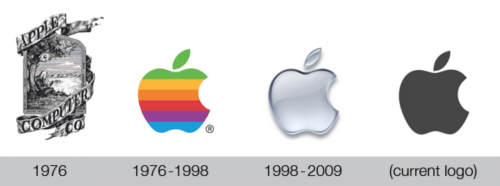Rebranding can take many forms, from picking a new name to implementing a new business model. Aligning your core values to your employee hierarchy. While these changes are taking place, your business still needs to work towards engaging and communicate with customers.
At a recent talk, I was asked “What are the benefits of rebranding?” and “How do we rebrand and keep our audience?” great questions as you do not want to disappoint current customers. This article will explain the benefits of rebranding and give you some considerations to make it work.
Know why you are rebranding.
A rebrand is a major undertaking, involving your entire business entity. Marketing, finance, online, client, industry awareness, employees and mission. The rebranding process is more likely to result in success if you focus on developing compelling reasons for the evolution.
One of my London based clients (offering discretion), is head of marketing and customer support for [investment firm], helped guide his company through an intricate rebrand involving both a major name change and a refocusing of services. They needed to keep an eye on their 50 year heritage, modernise how their future customers would engage with them, and maintain confidence in their existing client portfolio. In their case, a rebrand was necessary to encourage growth and clarify their services. However, if that’s not the case for your business, rebranding could do more harm than good.

If [your] company is leaning towards a rebrand, make sure to think through everything that will be affected and consider the time, expense, and work that will need to go into it and whether the Return On Investment (ROI) will justify the expense and effort.
When the VP of a well known and successful Interior Design agency, helped oversee the company’s rebrand, he worked hard to communicate that the change was primarily about earning and maintaining clients’ trust. “If you invest in your business, others will too”.
Their reasoning for a rebrand was to secure confidence when one of the founding partners exits the company (retirement) in 2022. Many companies grown from a founder, are built on the relationships of those key individuals – when they leave it can create uncertainty – so establishing change before individual change is a strategic execution of a successful transition plan.
Don’t commit to a rebrand without clear, strategic, customer-centered reasons, and once you do, make sure customers know exactly what those reasons are if you want to maintain their loyalty.

Have a comprehensive strategy before you start.
“With hospitality evolving dramatically and the landscape of the consumer buying triggers inconsistent, we needed to showcase our portfolio and offerings to a ‘new generation of traveller’ whilst maintaining the reliability of our existing customer network.” was quoted from one of our Hospitality clients in Dubai. When asked for her advice, “The difficulties arose in the details and the implementation. Like peeling back layers of an onion, you don’t realise all that goes into a rebrand until you get into it.”
When I consult on a rebrand strategy, I discover many businesses are surprised by the complexities involved in a rebrand. While initial plans may focus on a new name and matching domain, the process is likely to involve designing new logos, signage, new website and content, product guides, services being offered, even the clients you pursue. To ensure the process runs smoothly without losing customers, have a strategy in place before you begin.
Plan for the changes that need to be made and which areas of the business it will affect. Designate members of your team to be in charge of each area, from making design decisions to communicating with customers.
“Rebranding is a process through which you recalibrate your mission and priorities. Ensure you reflect this in your branded materials as well as the minds of your customers. Dedicated team members will dilute the workload and offer efficiency.”
Anticipate questions and concerns.
Communicating with customers during a rebrand is key to maintaining existing client relationships. If customers doesn’t understand why changes are happening, they may lose trust in the business, and you could see a significant drop in revenue. However, this is to be foreseen and is easily quashed.
One of my clients last year was in charge of rebranding his family’s business to expand it into a national franchise. But during the process, he found that many existing customers worried that the name change and expansion meant the family-owned business had been bought out. To preserve their trust, we worked to anticipate the questions customers would have and provide answers before they took their business elsewhere. Here are four tips to help you:
1. During a rebranding process, keep your communication simple, straightforward and speak to people’s fears and concerns.
2. Change is scary, and people need clear explanations and reassurance to understand, support, and buy into your vision.
3. Take your time but have a deadline to meet. You shouldn’t rush this process.
4. Employees are the ones responsible for communicating with customers, so understand their concerns.
Make sure you have a sound business reason for rebranding. Discuss with your team and get their buy-in. That way, your employees can easily communicate it to existing and potential clients, and understand the goals they should be tracking.
Every rebrand is meant to improve a business, so everyone needs to understand where to expect those improvements.

Get your rebrand out there.
Communicating with your customers doesn’t have to be internal or private. Confident business owners find that talking about their rebrand as publicly as possible didn’t just help them maintain their current level of business – it led to an increase.
Use social media, press releases, and media contacts to communicate with customers and the general public, when describing how [you] share the news about your rebrand. “We saw an increase in traffic to our website and greater interest in our company, because there was a better understanding of what we offered, and it was easier to find us in search engines.” quoted one of my successful corporate rebrands.
Ensure a healthy part of your rebrand budget is allocated to announcements. Investing in this is crucial and it’s the perfect opportunity to tell customers, clients and the industry about your evolution (without spamming them with a traditional mail blast).
A client this year, who we’ve known for some years, wanted to rebrand before their industry’s largest trade show in April of this year. With such a high-profile event coming up, their team had to talk publicly about the rebrand and the reasons behind it. This has been great for the company and they found it injected a sense of pride and passion to their employees.
Rebranding in a downturn, could be seen as a surprising investment, however, when you consider how your customers perceive you, it leads to increased confidence in you and your business.

Don’t shock existing customers.
Strategies, like being transparent about your rebrand and having a clear plan for how to accomplish it, go a long way toward retaining customers. The best way to avoid a drop in business is to focus on maintaining excellent service, no matter what else is going on. Ensure the rebrand affects your existing clients as little as possible. “It will take time for the new focus to start paying off, so you do not want the current revenue flow to drop.”
You may want to consider personal introductions to your new brand, email blasts or printed stationary. The ultimate goal of any rebrand should be to grow the company by better serving your customers. Sometimes this requires putting client services ahead of the rebrand. That isn’t necessarily a bad thing.
Over the years, I have been involved in rebrands taking longer than anticipated in part because existing clients had to be the company’s top focus. “The process of rebranding will take longer than you expect. Competing priorities – especially client or customer-facing priorities – will always require your time and attention ahead of the rebrand.” stated one client at a recent workshop.
I do hope that if you are considering a rebrand, you’ll consider speaking with me and my team of experts.
If you are ready to discuss your options and find out more about my brand consultancy services, please get in touch.
Thank you for reading.